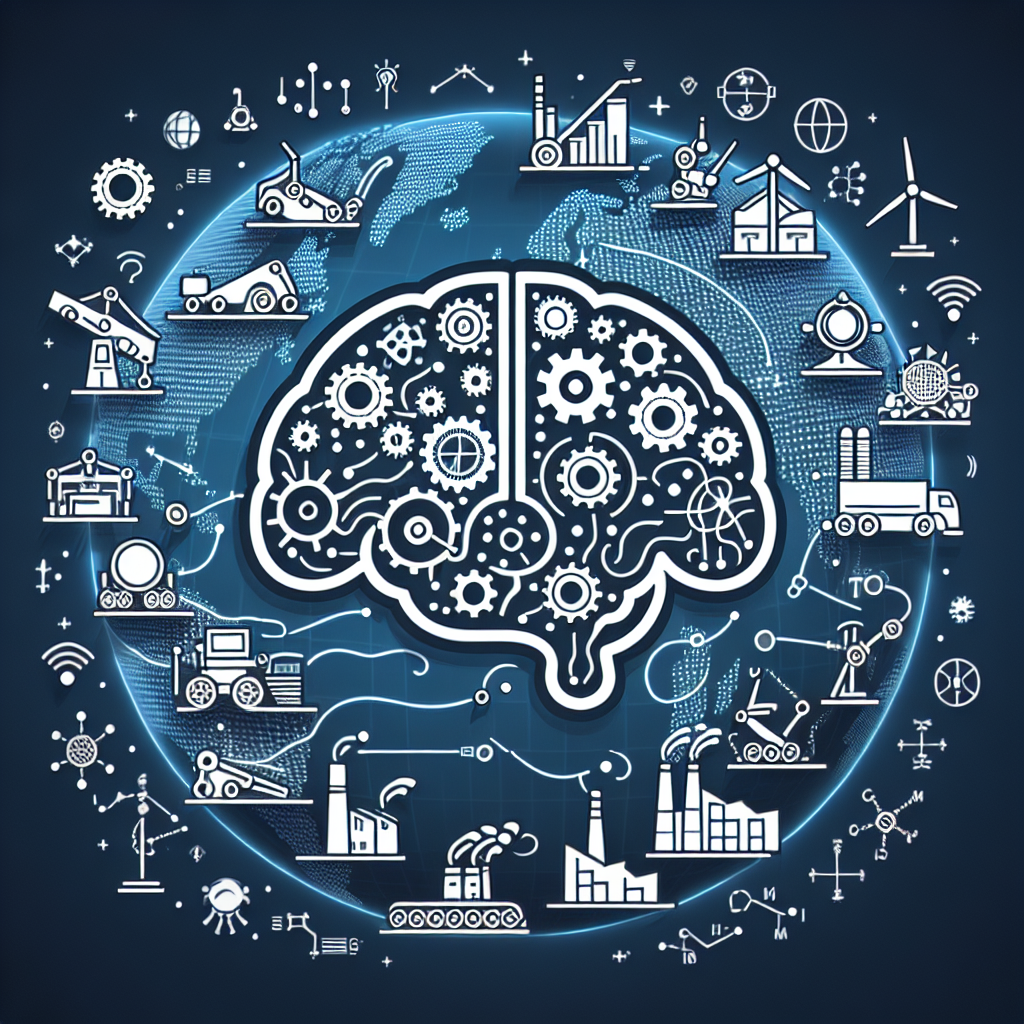Artificial General Intelligence (AGI) is a rapidly evolving technology that has the potential to revolutionize industries around the globe. AGI refers to a type of artificial intelligence that possesses human-like cognitive abilities, allowing it to learn and adapt to new tasks and environments in a way that is not possible with current AI systems. With the ability to reason, plan, and solve complex problems, AGI has the potential to automate a wide range of tasks and processes, leading to increased efficiency, productivity, and innovation across various industries.
In this article, we will explore the impact of AGI on industries around the globe, as well as address some frequently asked questions about this game-changing technology.
The Impact of AGI on Industries
1. Healthcare: AGI has the potential to revolutionize healthcare by improving diagnosis, treatment, and patient care. With the ability to analyze vast amounts of data and identify patterns and trends, AGI can help doctors make more accurate diagnoses and develop personalized treatment plans. Additionally, AGI-powered robots can assist with surgery, providing precision and efficiency that surpasses human capabilities.
2. Finance: In the finance industry, AGI can be used to analyze market trends, predict investment opportunities, and manage risk. By processing vast amounts of financial data in real-time, AGI can help traders make better decisions and optimize their portfolios. AGI can also be used to detect fraudulent activities and improve security measures within financial institutions.
3. Manufacturing: AGI has the potential to revolutionize the manufacturing industry by automating production processes and optimizing supply chains. With the ability to learn and adapt to new tasks, AGI-powered robots can perform a wide range of manufacturing tasks with precision and efficiency. This can lead to increased productivity, reduced costs, and improved quality control within manufacturing facilities.
4. Transportation: AGI can transform the transportation industry by improving safety, efficiency, and sustainability. Self-driving vehicles powered by AGI can navigate roads, identify obstacles, and make decisions in real-time, leading to safer and more efficient transportation systems. AGI can also optimize traffic flow, reduce emissions, and improve fuel efficiency, leading to a more sustainable transportation infrastructure.
5. Retail: AGI can enhance the retail industry by personalizing customer experiences, optimizing sales and marketing strategies, and streamlining supply chain operations. By analyzing customer data and preferences, AGI can recommend products, tailor promotions, and improve customer service. AGI can also be used to optimize inventory management, reduce costs, and improve overall operational efficiency within retail businesses.
Frequently Asked Questions About AGI
1. What is the difference between AGI and narrow AI?
AGI refers to artificial intelligence that possesses human-like cognitive abilities, allowing it to learn and adapt to new tasks and environments. In contrast, narrow AI refers to artificial intelligence that is designed for specific tasks or applications, such as image recognition, speech recognition, or natural language processing. While narrow AI excels at performing specific tasks, AGI is capable of performing a wide range of tasks and adapting to new tasks in a way that is not possible with narrow AI.
2. How close are we to achieving AGI?
While significant progress has been made in the field of artificial intelligence, achieving AGI remains a challenging task. Researchers are actively working on developing algorithms and technologies that can emulate human-like cognitive abilities, but there are still many technical and ethical challenges that need to be addressed. It is difficult to predict when AGI will be achieved, but many experts believe that it could happen within the next few decades.
3. What are the potential risks and challenges associated with AGI?
While AGI has the potential to revolutionize industries around the globe, it also poses certain risks and challenges. One of the major concerns is the potential for AGI to surpass human intelligence and autonomy, leading to unforeseen consequences and ethical dilemmas. There are also concerns about the impact of AGI on the job market, as automation could lead to job displacement and economic disruption. Additionally, there are concerns about the misuse of AGI for malicious purposes, such as cyber attacks or surveillance.
4. How can we ensure the responsible development and deployment of AGI?
To ensure the responsible development and deployment of AGI, it is important for researchers, policymakers, and industry stakeholders to work together to address ethical, legal, and social implications. This includes establishing guidelines and regulations for the development and use of AGI, as well as promoting transparency and accountability in AI systems. It is also important to consider the potential impact of AGI on society, and to develop strategies for addressing any negative consequences that may arise.
5. What are some of the potential benefits of AGI for industries?
AGI has the potential to bring a wide range of benefits to industries, including increased efficiency, productivity, and innovation. By automating tasks and processes, AGI can free up human workers to focus on more creative and strategic activities. AGI can also help businesses make better decisions, improve customer experiences, and optimize operations. Overall, AGI has the potential to revolutionize industries around the globe, leading to increased competitiveness, growth, and success.
In conclusion, AGI is a game-changer for industries around the globe, with the potential to revolutionize healthcare, finance, manufacturing, transportation, retail, and many other sectors. While there are challenges and risks associated with AGI, the benefits are vast and far-reaching. By working together to address ethical, legal, and social implications, we can ensure that AGI is developed and deployed in a responsible and beneficial manner. As we continue to advance the field of artificial intelligence, the possibilities for AGI are truly endless, and the impact on industries around the globe will be profound.

